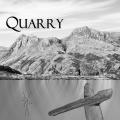About Yvain

Four Arthurian Romances by Chrétien de Troyes is a cornerstone of medieval literature, offering readers a deep dive into the legendary world of King Arthur and his knights. Written in the 12th century, this collection includes four captivating romances: Erec and Enide, Cligès, Yvain, the Knight of the Lion, and Lancelot, the Knight of the Cart. Each of these tales is rich with themes of chivalry, adventure, and the eternal pursuit of love, virtue, and honor.
Chrétien de Troyes, a French poet and one of the foremost creators of Arthurian literature, weaves together rich narratives that explore the ideals of courtly love and knighthood. The stories are not just about physical battles but also the moral and emotional struggles knights face as they navigate loyalty, honor, and love. Courtly love, a concept central to these tales, presents the delicate and often complicated relationships between knights and their ladies, emphasizing devotion, sacrifice, and noble ideals.
Beyond romantic love, the book delves into the chivalric code, a set of moral guidelines governing the actions of knights. It is through this lens that Chrétien’s characters embark on their quests, demonstrating bravery, wisdom, and courtesy. The tales also illuminate the human capacity for growth, whether through personal challenges or heroic acts.
Chrétien’s influence on the Arthurian tradition cannot be overstated. His work not only helped popularize the legend of King Arthur but also set the stage for the many retellings that would follow. His poetic style, filled with rich imagery and complex characters, continues to captivate readers and scholars alike, preserving the medieval ideals of heroism and love for generations to come.
****[This romance]** provides a translation of Chrétien’s major poem, Yvain**, in verse that fully and satisfyingly captures the movement, the sense, and the spirit of the Old French original. Yvain is a courtly romance with a moral tenor; it is ironic and sometimes bawdy; the poetry is crisp and vivid. In addition, the psychological and the socio-historical perceptions of the poem are of profound literary and historical importance, for it evokes the emotions and the values of a flourishing, vibrant medieval past.

 Help offset server costs by donating. This is totally optional. Any overages will go to library fines or new books.
Help offset server costs by donating. This is totally optional. Any overages will go to library fines or new books.
